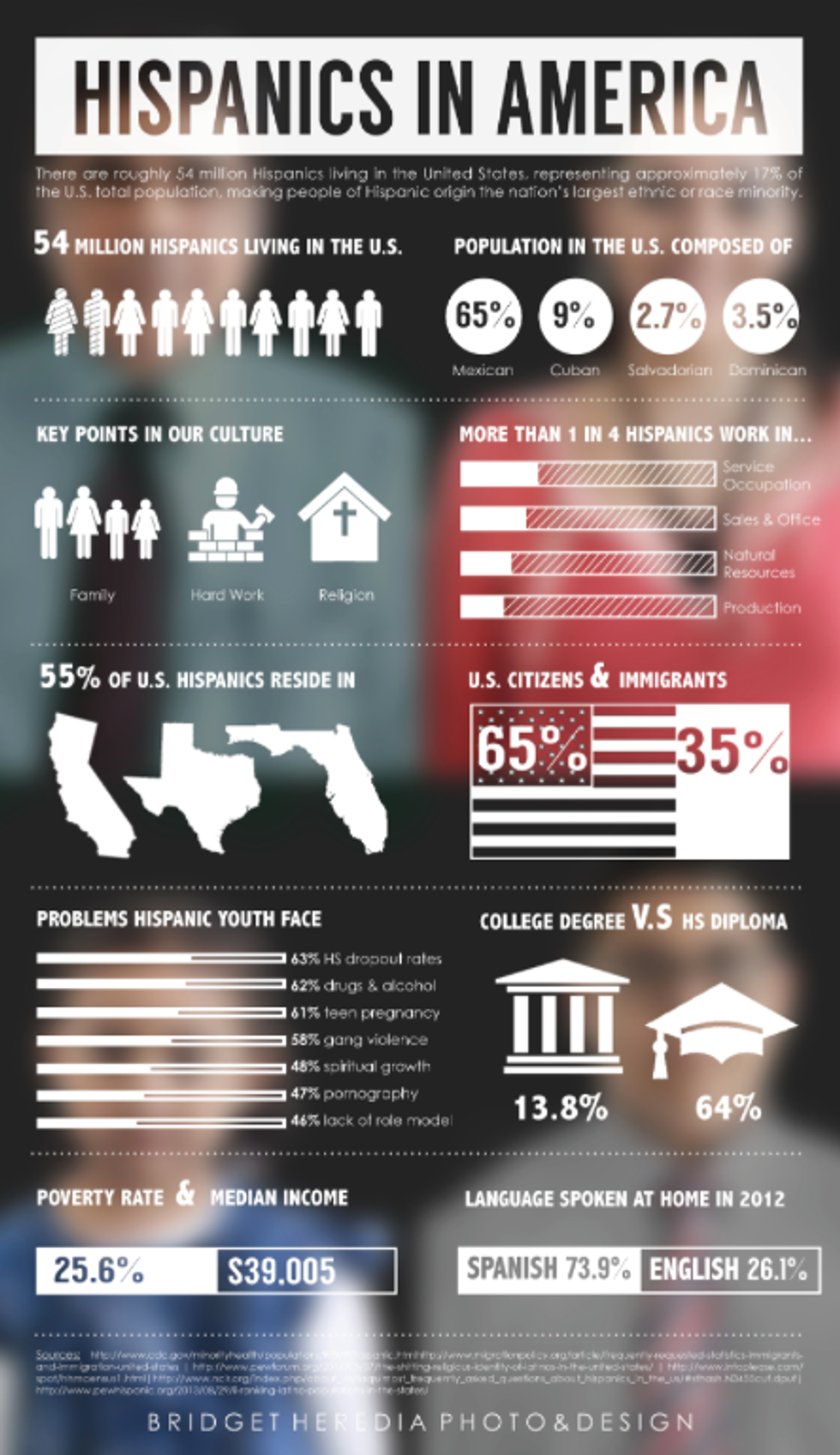I am No.2 in the lineage of second-generation Americans in my Colombian-immigrated family, but I was the first to be educated in the American system. I lost my Hispanic accent around the 8th grade and until my second semester of sophomore year in college, I struggled with an identity perspective that tore me between my Colombian heritage and my American-influenced development. Millions of children born to immigrant parents share this similar point of view because our “outside” does not match our “inside”. Our exterior features decide our label. Hispanic. Indian. Asian. Blasian. Black. White. This is what we have to offer in the arena of first impressions. The multicultural backgrounds of Americans today is only growing, through gentrification, interracial marriages and academia. Eventually, I believe the image of an American will not be a singular one, but a variety and a true melting pot of what we believe America to be.
When traveling in Spain or Denmark, I did not just choose one of my nationalities, I chose both, I could carry both. Where my cousins and their neighborhood friends would taunt me around as “la gringa” and in America, I was a white man’s “Hispanic or Colombian girlfriend” these labels that had been branded onto me growing up finally came together. In an interview with Stephen Colbert, Riz Ahmed, a British actor and rapper, stated that he is what Britain looks like, Idris Elba is what Britain looks like. But at first glances, he looks Middle Eastern or Hispanic to most and Elba, a black man. Somewhere along Ahmed’s growing up, he came to realize that he didn’t have to explain that his skin was darker because his parents were immigrants and simply put, he was just a British as the Queen of England. Though unwelcoming, Great Britain, due to the Brexit vote, has allowed for more publicized discriminatory rhetoric to flow around like we’ve see here in the United States, there seems to be an overall consensus that if you’re born in Britain, you are British. What is only growing the divide in America today is that we have become divided in our communities, states, regions and country as a whole that our looks and our background will only do more to separate us into groups instead of tying us together.
Once the children of immigrant or foreign-born parents have come to accept their identity and how they are received to the general public, the next obstacle is typecasting. Ahmed speaks of typecasting in the aspect of film or TV roles in an essay for The Good Immigrant, a book of essays about race and immigration in the United Kingdom by British minority ethnic writers, as a three step process that will eventually break the patterns of the film industry to cast every Middle Eastern looking actor as a terrorist or cab driver. For Hispanic actresses, it is being typecast as a fiery, Latin woman with an exaggerated accent and accentuating outfit. For us, in the everyday world, that are of a foreign descent or our parents are not born and bred Americans, typecasting means auditioning for a role you do not want to perform in.
Typecasting are the stereotypes placed on us based on the way we look, our exterior features. Breaking the mold involves determination and drive to demonstrate to the world that not all Asian kids are good at math or not all Hispanics or any person that similar resembles a tanner “Caucasian” speaks español. Ahmed states that as a minority, the labels that are given can either serve to be constricting or decorative.
The portrayal of how minorities and more importantly, children of minorities are perceived can be changed and achieved through three steps according to The Night Of actor. One, the two dimensional stereotype must be challenged and shown that “one size does not fit all” in the realm of culture and background. Two, the subversive portrayal, which shows that not every minority is comfortable of adjusted to the ways of life in the country that their exterior represents. Three, the promise land, where the emerging adult can finally live life accordingly and not have every action or decision made influenced or attributed to their race.
To read more of Riz Ahmed’s identity perspective and career, click here: Typecast as a terrorist
























